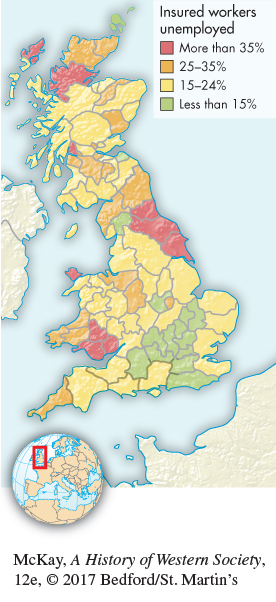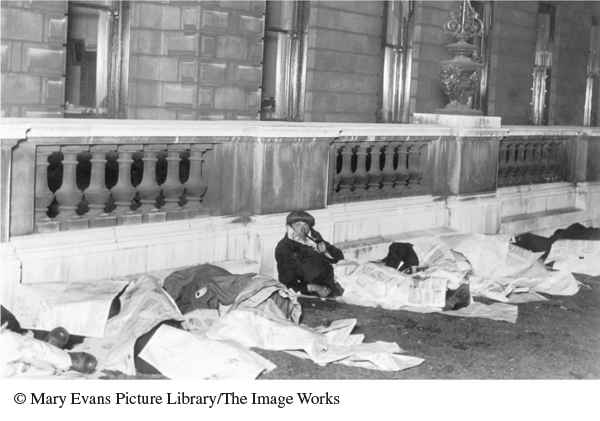A History of Western Society: Printed Page 895
A History of Western Society, Value Edition: Printed Page 857
A History of Western Society, Concise Edition: Printed Page 894
Mass Unemployment

The lack of large-

Mass unemployment created great social problems. Poverty increased dramatically, although in most countries unemployed workers generally received some kind of meager unemployment benefits or public aid that prevented starvation. (See “Evaluating the Evidence 26.3: George Orwell on Life on the Dole.”) Millions of people lost their spirit, condemned to an apparently hopeless search for work. Homes and ways of life were disrupted in millions of personal tragedies. Young people postponed marriages, and birthrates fell sharply. There was an increase in suicide and mental illness. Poverty or the threat of poverty became a grinding reality. In 1932 the workers of Manchester, England, appealed to their city officials — a typical plea echoed throughout the Western world:
We tell you that thousands of people . . . are in desperate straits. We tell you that men, women, and children are going hungry. . . .
Only strong government action could deal with mass unemployment, a social powder keg preparing to explode.